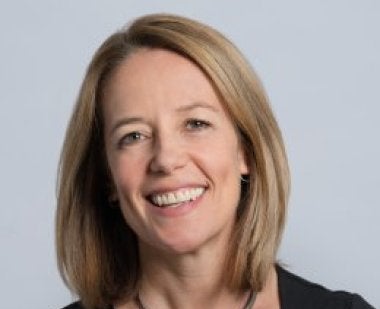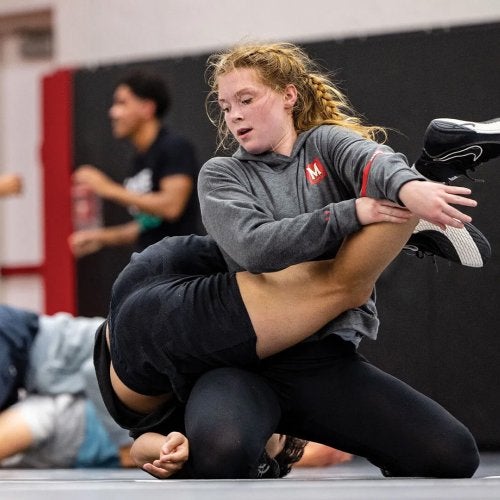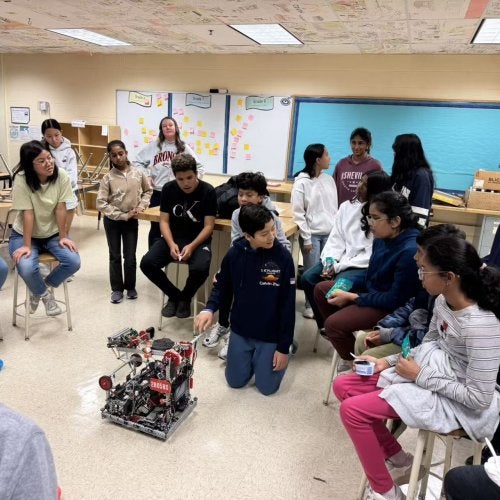

Novice Teachers have Role in Designing Core Practices for English Learners, University of Maryland Research Finds

Being a new teacher is hard work, particularly during the first several years when teachers transition from preservice education to the classroom. At the University of Maryland College of Education, researchers are taking a new approach in easing some of the challenges that new, or novice, teachers face in the classroom.
At COE, researchers are including novice teachers in the design of core practices, or CPs, which are teaching practices critical to student learning and the early career success of novice teachers. The study, published in Action in Teacher Education, asks novice teachers to take part in the development, selection and refinement of core practices that will support novice teachers once they enter the classroom.
“One of the reasons for the emphasis on core practices is so that novice teachers really feel like they can go and be successful from the very first day that they’re in the classroom,” says study principal investigator Megan Madigan Peercy of COE’s Department of Teaching and Learning, Policy and Leadership.
In the last decade, core practices have gained increasing attention in the discussion of general teacher education. Yet, thus far, researchers and academics have led the charge in designing core practices, while novice teachers—the ones core practices are meant to help—largely have been left out of the conversation.
“We are bringing in novice teacher voices and experiences to help us identify core practices, which is unusual,” Dr. Peercy says.
Until now, most field-specific core practices have been focused on certain subject areas, such as math, science and history. The COE project, which draws on a cohort of nine undergraduate COE students, has been ongoing for five years and centers on English Language Learners (ELLs), a student group particularly relevant in Maryland where in Prince George’s County alone there are more than 105 different languages represented.
“There has really been an explosion of ELLs in Maryland, and usually the biggest gap in teachers’ understanding is how to work with ELLs,” Dr. Peercy says. “To me, it’s an issue of equity and social justice to have teachers who know how to work effectively with ELLs.”
In the COE study, a number of core practices emerged that might not have otherwise without the input of the novice teachers, Dr. Peercy says. In addition to existing general core practices, such as creating a positive learning environment and offering support to students through scaffolding—a process that aims to grow students’ self-sufficiency—the novice teachers noted other core practices key to success for ELLs, including:
- Knowing students in the context of school and their lives outside of school, which topped the list.
- Building a positive classroom environment for ELLs.
- Navigating how to share expertise and collaborating with colleagues and other specialists.
- Practicing self-care and well-being strategies.
“Some of the things that I think are different that may not have come up if you weren’t working with novice teacher voices, for instance, is the importance of teacher self-care,” Dr. Peercy says. “Teacher self-care came through really huge in our conversations.”
Ultimately, Dr. Peercy would like to implement these core practices in ELL teacher education at COE, and stresses the value of including novice teacher voices in their development, for both the success of ELL teachers and students.
“I hope that the takeaway is the importance of including teachers in this work, and that we’re providing a good foundation for the field to start to talk about CPs for ELLs,” Dr. Peercy says.
Dr. Peercy is an associate professor in COE’s Department of Teaching and Learning, Policy and Leadership. Her interests include practice-based pedagogies of teacher education, teacher collaboration and core practice for teaching English Language Learners.


